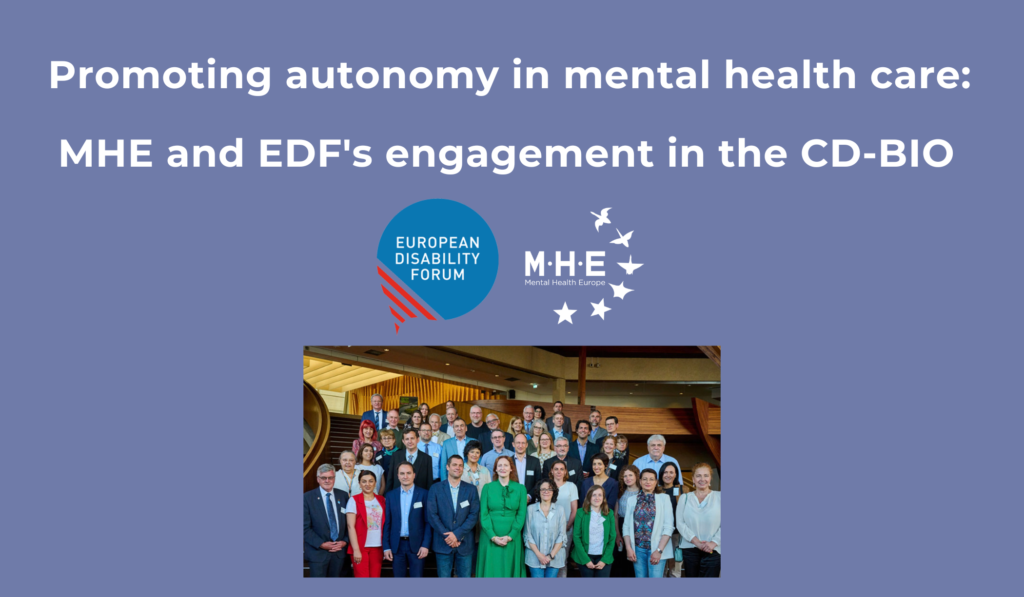Promoting autonomy in mental health care: MHE and EDF’s engagement in the Steering Committee for Human Rights in the fields of Biomedicine and Health (CD-BIO)

We are pleased to announce the active participation of Mental Health Europe (MHE) and the European Disability Forum (EDF) in the Steering Committee on Human Rights, Biomedicine, and Health (CD-BIO) session of the Council of Europe, held on 7 June. The discussions revolved around the draft Recommendation on respecting autonomy in mental health care, with a particular focus on reducing and ultimately eliminating coercion in mental health settings.
During the session, MHE Vice President Kristijan Grđan, along with EDF Vice-President Pat Clarke and ENUSP representatives, expressed concerns about the lack of concrete measures in the draft Recommendation to address coercion in mental health care. We are delighted to report that the CD-BIO decided to adopt our proposal to include references to the WHO Quality Rights Initiative and the UN Convention on the Rights of Persons with Disabilities in the Preamble of the draft Recommendation.
We are pleased to share that the CD-BIO accepted our proposal to broaden the scope and objective of the draft Recommendation, aiming to prevent coercion in mental health care. This is a significant development that reflects the CD-BIO’s consideration of civil society organisations’ input and proposals on various aspects of the draft Recommendation.
MHE once again extended a hand of partnership to the CD-BIO, emphasising the importance of creating mechanisms to decrease and ultimately end coercion in mental health care. We believe that this can be achieved through the aforementioned draft Recommendation and by withdrawing the draft Additional Protocol to the Oviedo Convention.
Both MHE and EDF are committed to supporting the ongoing efforts to develop policies that eliminate coercion in mental health settings. Our active involvement in the CD-BIO aims to influence the decision to drop the draft Additional Protocol to the Oviedo Convention and instead develop a Recommendation that upholds and respects the autonomy of individuals receiving mental health services.
Together, we strive to create a mental health care system that empowers individuals and respects their rights and autonomy.
Stay connected
Get our latest news, personal stories, research articles, and job opportunities.

